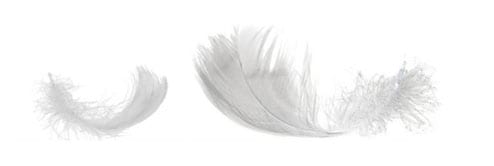Night Sweats: What Are They and How to Stop Them
The term “night sweats” describes excessive sweating at night during sleep. This can affect both men and women of all ages. Though it is often associated with fever, there are actually many other causes which can lead people to experience night sweats. Night sweats are often connected with menopause, illness, and some medications. However, the most common cause of night sweats is the use of sleepwear and duvets which are unsuitable for the local climate or room temperature.
What Are Night Sweats?
Night sweats are when your body sweats excessively during sleep. This can occur regardless of how high the temperature is. If the night sweats are due to overheating, then they might be alleviated just by using a lighter duvet.
Night sweats can come on suddenly and unexpectedly, dampening the sheets in a short amount of time. This can sometimes be a sign of underlying medical conditions, although many people experience excessive sweating at night that isn’t at all related to any medical issues.
Finding the Right Duvet to Stop Night Sweats
Night sweats can cause interrupted sleep, and this can lead to exhaustion and fatigue throughout the day. If you tend to overheat at night, then you know just how unpleasant it can be to wake up uncomfortable and covered in sweat. If you are sweating too much while sleeping, then you may be using the wrong duvet or pillow.
Making the Right Decision
People can sweat under any duvet if it is too warm, regardless of whether it is filled with down, wool, or synthetic fibres. This is why it is essential to choose the right duvet and pillow for your needs. To find that perfect duvet, you’ll need to take a look at the tog rating. Tog rating is a type of measurement used to measure warmth in duvets – the higher the tog rating, the warmer the duvet. During the summer, a tog rating of 4.5 is optimal for most people. During the winter, you will want to go for a tog rating of around 12.0. There are also “all-season” duvets which combine two separate down duvets for both summer and winter use.
Browse and compare our range of All-Season convertible down duvets.
Moisture-Management and Ventilation
Another factor which could be contributing to night sweats is that of the ventilation and the moisture-management capacity of your pillows and duvet. Certain fillings allow for better ventilation than others, with down or wool being the best for combating night sweats. These fillings tend to breathe much better than synthetic fillings, which are known to ventilate poorly and cause those who use them to overheat and sweat much more. You can further ensure breathability by choosing a cover for your duvet that also allows for good ventilation. Covers which are 100% cotton often do the job nicely and tend to be softer on your skin when compared to cheaper options.
The same principles apply when it comes to the duvet fabric, the layer encasing the down in your duvet. Cotton works best as it is tightly-woven yet eminently breathable, making it a particularly effective option when it comes to eliminating moisture buildup in your duvet. It is also advisable to frequently air out your duvets and pillows when the weather permits. When you are not using pillows and duvets, it is advisable that you store them in a well-ventilated area and to avoid plastic bags in order to maximise the ventilation and moisture-managing effects.
For breathable 100% cotton fabrics explore the Dickenbergh range.
Causes of Excessive Sweating
Room Temperature
It could be worth checking the temperature of the room you sleep in. We know that this sounds obvious, but you may be surprised – research has consistently shown that the optimal sleeping temperature falls between 16 and 20°C. This means that your room should be fairly cool at night before you go to bed. If your room is kept a few degrees above or below these ideal levels, then it is likely the cause of your restless and feverish sleep.
Sleepwear
Another often overlooked factor is the sleepwear you choose. If you wear the same pyjamas or nightwear all-year round, then you are liable to become too hot during the warmer months of the year. Wearing socks, however, does not affect this. It can actually be beneficial to wear socks during the night, even if you overheat typically while sleeping. This is due to the fact that our body temperature needs balance – when our core temperature drops, our extremities (hands and feet) can become even colder. Creating a balance can be the difference between a comfortable night’s sleep and waking up drenched in sweat. Try wearing lighter sleepwear with socks during the summer and see if you notice the improvement.
Medical Issues
If you have tried these methods and are still experiencing problems with overheating, then it is always important to consult your doctor to see if the cause could be health related. Some types of medication list night sweats as a side-effect, so make sure to check the labels to see if you may be affected by this. Hormone disorders, neurological conditions, and even natural bodily changes, such as menopause, can cause excessive sweating while sleeping. If in doubt, please visit your doctor.
Children
Children experiencing night sweats can be very worrying for parents, and can affect a child’s quality of sleep. This can cause lower levels of concentration and drowsiness during the day. It’s important to remember that climate conditions can have a stronger effect on children than adults, so sweating during the night can just be caused by being generally too warm at night.
There are a few things you can do to make sure your child stays comfortable at night, such as leaving a few hours between dinner and bedtime to make sure your child has time to digest their food before going to sleep. You should also make sure the bedroom isn’t too warm, and that the correct blankets are being used for the season. Fresh air can really improve sleep quality, so open a window slightly if possible.
If you’re worried that your child is experiencing night sweats, then you should visit the doctor to get a professional medical opinion.
Night sweats can prevent you feeling refreshed in the mornings
Additional Measures to Help You Sleep Easy
- Keeping a glass of ice-cold water next to your bed can save you the trouble of getting out of bed when you overheat.
- Wearing cotton pyjamas or other breathable fabric, such as linen or rayon, is a great option to help keep your body cool.
- Investing in a fan or air conditioning system if you live in a warmer environment.
- Taking a cool shower before you sleep lowers your core temperature allowing you to feel cooler for longer when you sleep.
So whether you’re looking for a lighter, breathable duvet or just a more comfortable sleep that leaves you feeling well-rested and ready to start the day– don’t sweat it. Downduvet has got you covered with a wide range of high-quality products to help you sleep easy.

